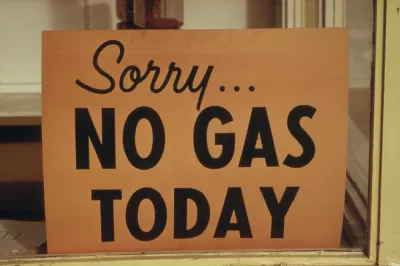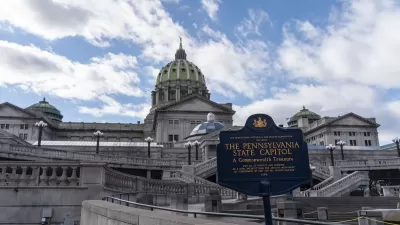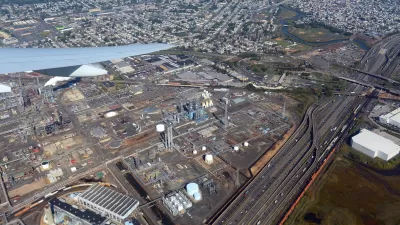There must be something about having a coast on the Pacific Ocean that makes states set policies to accelerate the end of the internal combustion engine.

“Policymakers for the Oregon Department of Environmental Quality on Monday approved a rule that bans the sale of new gasoline-powered passenger vehicles in Oregon by 2035,” reports Gosia Wozniacka.
The state of Oregon has set targets to cut greenhouse gas (GHG) emissions by 50 percent by 2035 and 90 percent by 2050. The decision to ban internal combustion engines from new vehicles is intended to cut emissions in the transportation sector—responsible for a plurality of emissions in the state.
According to the article, Oregon’s new rule is based on vehicle emissions standards adopted by California in August (California Governor Gavin Newsom released an executive order to accomplish the ban in September 2020).
“The rule allows for sales of plug-in hybrid vehicles, which run primarily on electricity but also are able to run on gas, to provide flexibility for Oregonians, especially those in rural areas with fewer charging stations,” reports Wozniacka. “The ban on gas cars does not affect cars already on the road and does not require Oregonians to stop buying gas-powered vehicles. Used gas-powered cars will continue to be available for sale within the state. Customers who want a new car that runs on gasoline will have to shop out of state.”
FULL STORY: Oregon bans sales of new gas-powered cars by 2035

Maui's Vacation Rental Debate Turns Ugly
Verbal attacks, misinformation campaigns and fistfights plague a high-stakes debate to convert thousands of vacation rentals into long-term housing.

Planetizen Federal Action Tracker
A weekly monitor of how Trump’s orders and actions are impacting planners and planning in America.

In Urban Planning, AI Prompting Could be the New Design Thinking
Creativity has long been key to great urban design. What if we see AI as our new creative partner?

Pedestrian Deaths Drop, Remain Twice as High as in 2009
Fatalities declined by 4 percent in 2024, but the U.S. is still nowhere close to ‘Vision Zero.’

King County Supportive Housing Program Offers Hope for Unhoused Residents
The county is taking a ‘Housing First’ approach that prioritizes getting people into housing, then offering wraparound supportive services.

Researchers Use AI to Get Clearer Picture of US Housing
Analysts are using artificial intelligence to supercharge their research by allowing them to comb through data faster. Though these AI tools can be error prone, they save time and housing researchers are optimistic about the future.
Urban Design for Planners 1: Software Tools
This six-course series explores essential urban design concepts using open source software and equips planners with the tools they need to participate fully in the urban design process.
Planning for Universal Design
Learn the tools for implementing Universal Design in planning regulations.
planning NEXT
Appalachian Highlands Housing Partners
Mpact (founded as Rail~Volution)
City of Camden Redevelopment Agency
City of Astoria
City of Portland
City of Laramie





























